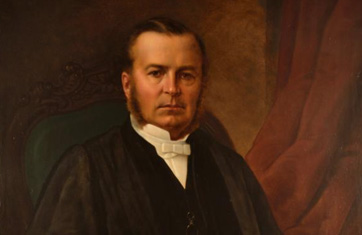The G7 for Africa and the Mediterranean: the Common Challenges of Stability and Growth - The 22nd G7 Speakers’ Meeting Verona
Friday, September 6, 2024
(Check against delivery)
Fellow Speakers, Distinguished Guests:
It is a great honour to be with you in the beautiful city of Verona. I want to thank our Italian hosts for their contribution to the organization of this meeting. And congratulations to Italy for successfully chairing the G7 this year.
My remarks today will focus on opportunities and challenges in Africa and on the role of G7 parliaments in its success. Let me start with the opportunities. Because Africa is already on a path to success.
Africa has the world’s youngest and fastest growing population.
The UN estimates that Africa’s population will nearly double to 2.5 billion by 2050. This means that, 25 years from now, approximately 25% of the total global population will be African. In particular, Africa has the largest number of francophones in the world. It has served as chair of the Assemblée parlementaire de la Francophonie since last July, taking up the torch that Canada had been carrying since 2022.
Africa is also rich in natural resources, including minerals and metals that are highly sought after by the tech industry and other economic sectors. Furthermore, with an expanding middle class, Africa is emerging as an attractive consumer market and destination for global supply chains.
The creation of the African Continental Free Trade Area has the potential to dramatically increase Africa’s trade with the rest of the world. Once this free trade area becomes fully operational, the gross domestic product of all the member countries combined should make it the fifth-largest economy in the world. It could also lift 30 million Africans out of poverty.
We can celebrate that statistic, but let us recognize the scale of the problem. Lifting 30 million people out of poverty on a continent that will, in just one generation, be home to one quarter of the world’s population cannot come close to addressing the bigger question of fairness.
Why must Africans face problems that are not of their making?
Let’s look at the question of climate change. It is estimated that 17 of the 20 countries most threatened by climate change are in Africa. Countries in Africa are responsible for only a fraction of global greenhouse gas emissions but are suffering disproportionately from climate change. We know that climate change is exacerbating water-related events like floods and droughts, for example. Severe floods, like those recorded in East Africa earlier this year, disrupt daily life, destroy infrastructure, and sweep away or damage crops essential to food security. And in Southern Africa, approximately 68 million people need assistance because of the severe drought that began in early 2024. Four hundred and eighteen million (418,000,000) people in Africa already do not have access to safe drinking water, and more could be affected due to climate change–related droughts. Climate change and extreme weather events don’t just disrupt economies; they cause public health emergencies, food insecurity, and massive population movements.
Let’s talk about food security. As the June 2024 G7 leaders’ communiqué stated, countries should not be forced to choose between protecting the planet and feeding themselves.
However, in many African countries, recent climate shocks have increased hunger. Of course, food security is not just about climate change. Russia’s invasion of Ukraine in 2022 and its blockade of the Black Sea dealt a massive blow to Africa, which relies on Ukraine for much of its grain imports. By triggering a grain shortage and a sharp increase in the price of food, Russia’s aggression has affected some of the world’s most vulnerable countries.
Climate change shocks and food insecurity… In such circumstances, should irregular migration be a surprise?
No. Because when there is no hope for a better future, people are willing to risk everything, including their lives. In 2023, there was a surge in irregular migrant crossings from North Africa to Europe across the Mediterranean Sea. My question to you today is not how we can stop this migration, but rather how we can address the causes that put these migrants on such a perilous path.
Colleagues:
In our increasingly globalized world, big challenges cannot be solved alone.
And many of the issues Africa faces today can be traced back to a history of colonialism, a history that many of our nations share. The legacy of colonialism in Canada is not dissimilar to the legacy of colonialism elsewhere. We see communities and individuals dealing with generational trauma, poverty, and lack of access to resources, including clean water. We see a lack of opportunity. A lack of hope. In politics, we say it is better to voluntarily do today what we will be forced to do tomorrow.
When it comes to the G7 parliaments, let us be bold today.
Let us help build self-sufficiency in Africa today.
Let us bear the responsibility for the consequences of history, this day and every day. Let us help create opportunity and hope.
Colleagues:
Given the opportunities and challenges facing Africa, G7 parliaments have a huge role to play. We must partner with African countries to unlock and enable their continent’s enormous potential. There are very positive signs in Africa. The strength of civil society, the proportion of women serving in legislative assemblies, and peaceful transfers of power at the ballot box are all trending up. As we all know, sustainable development, democracy, and human rights are mutually supportive. Because of this, the G7 community must continue to support Africa’s efforts to advance human rights and build an inclusive and diversified society. In particular, we must fight all discrimination and protect and promote the rights of vulnerable groups so that everyone, regardless of origin, religion or gender, can live with dignity and have opportunities.
In conclusion, let me commend Italy for making Africa a priority on our agenda this year. This builds on the G7’s adoption of the Africa Action Plan at the 2002 summit in Kananaskis, Alberta. As a Canadian, I’m delighted that Kananaskis—a beautiful city in the heart of the Rocky Mountains—will once again host the summit of G7 leaders next year.
I look forward to welcoming you in Canada next year.
Thank you.


